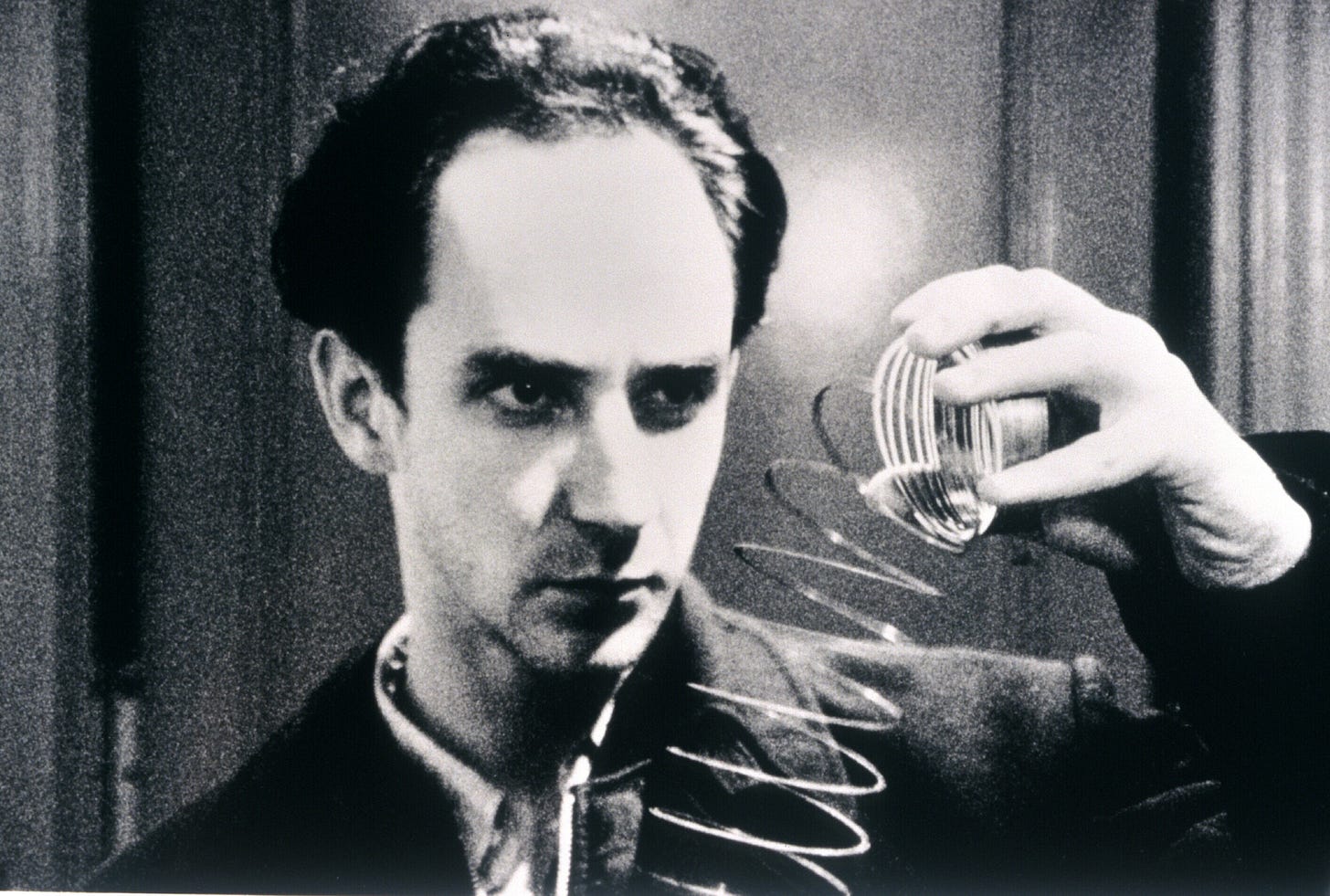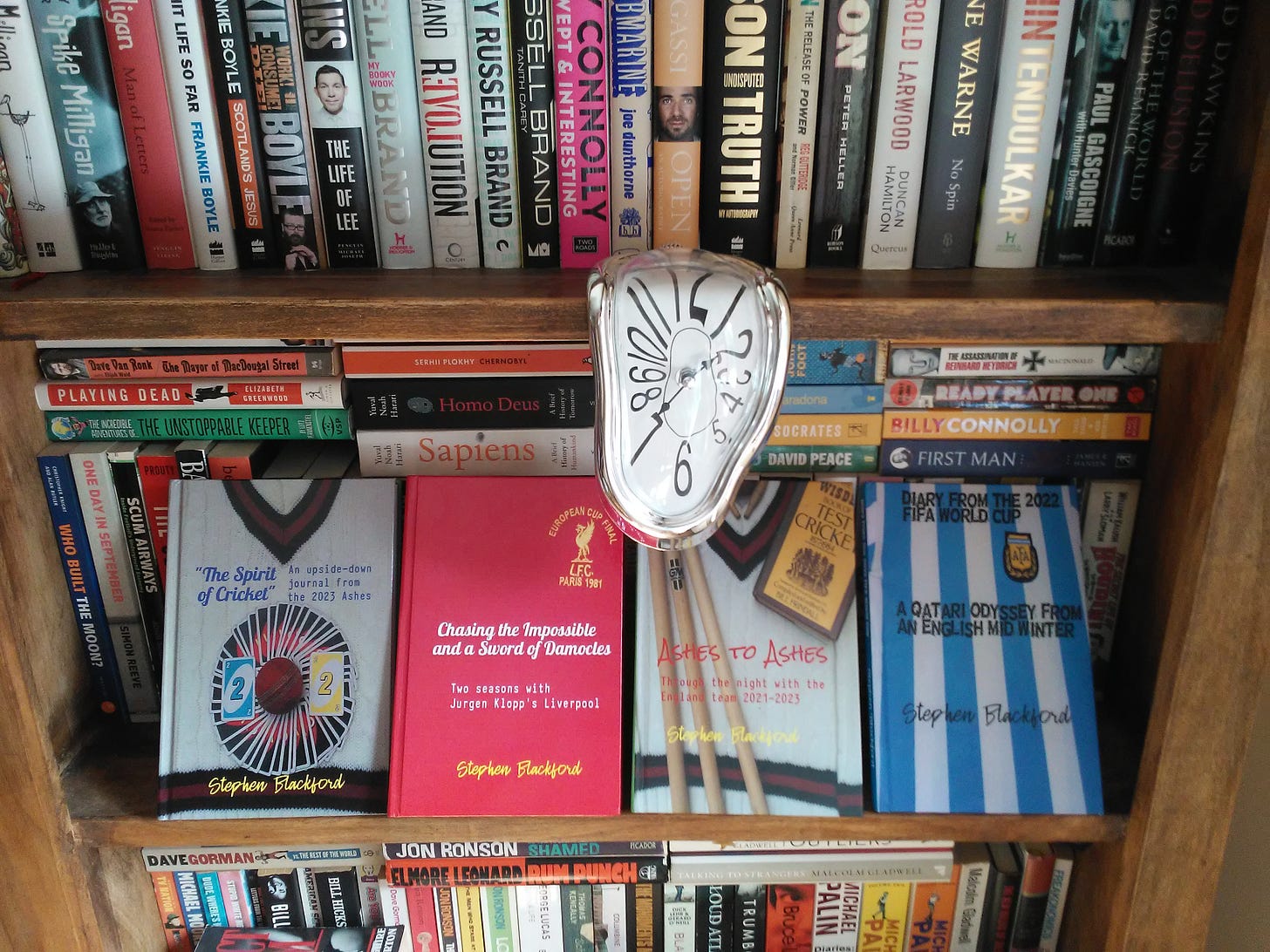“Pi” (1998) — Read Along
“When I was a little kid, my Mother told me not to stare into the Sun”.

Are you as obsessed with the films of Darren Aronofsky as I am? Does the buzzing, throbbing background to “Requiem for a Dream” make you uneasy as Clint Mansell’s beautiful and iconic musical soundtrack lulls you into a false sense of cinematic security before yet another tale of compulsive obsessive and destructive desire shatters your heart into a thousand pieces? “The Fountain” always leaves me feeling strangely cold despite its unifying themes of universal oneness but are you cheering like me for Mickey Rourke by the time Bruce Springsteen brings his 2008 film “The Wrestler” to a poignant close? I’ll place a bet with you that “Black Swan” wasn’t the last film you ever watched with a dearly missed Mum and that even at our respective advanced ages we still squirmed our way through the sex scenes, not knowing which way to look! What a memory that is, and yet another incredible film of a desperate desire for perfection amid the paranoia and obsessive compulsions that drive so many of Aronofsky’s films. White on Black. Black on White. Repeat. Repeat.
Repeat.
You may enjoy “Noah” far more than I do but then again, this would an easy obsessional objective to achieve as his 2014 film falls into the same category of “The Fountain” above and I bet you didn’t treat a prospective girlfriend or boyfriend to a trip to the cinema in 2017 to see “Mother!”, only for her to exclaim “Well that was bloody weird!” immediately afterwards. Bloody weird it is too and bloody gloriously so. My goodness what a film!
Bringing us all up to date with a quarter of a century of excruciatingly difficult films to watch we have of course “The Whale” from 2022 and Brendan Fraser’s Oscar winning performance of an English tutor obsessionally eating himself to death to dull the pain of grief and a life lived in the past and who whilst seeing only the best in every person in his life doesn’t see the very best in himself and can only repeat a single word time, and time again: “sorry”. Is you heart as broken as mine come the end credits of yet another astonishing film from the New York born filmmaker?
All of these obsessive questions and tall, albeit true tales and so many more will be covered in the coming editions of my “Read Along” series of articles on favourite films of yesteryear and especially those from within the canon of cinematic work from Darren Aronofsky. I’ll be releasing my spoiler free thoughts on “Requiem for a Dream”, “The Wrestler”, “Black Swan”, “Mother!” and “The Whale” in the coming days but uniquely here in this read along format whereby I present to you both my written review and my reading of this review direct to camera. It’s a format that works (though probably not in my hands!) but I’m trying something new for film reviews written over a decade ago and as recent as last Summer and everywhere in between.
So we’ll start my Aronofsky odyssey at the beginning, as we surely must, and his debut film from 1998 “Pi” and a film that is incredibly disturbing and discombobulating way before a final 15 minutes of a film that may shock you to the core as it did me all those long years ago and continues to do so on every repeat viewing. Below you will immediately find an excerpt from a lengthy spoiler free review of the film before link(s) to my original review in full, a link to my opus blog article and every film in the career to date of Darren Aronofsky, a link to volume 4 of my 7 volumes of “Essential Film Reviews Collection” available via Amazon (and FREE to read should you have an Amazon Kindle “Unlimited” package) as well as my Youtube and Rumble channel videos of me reading my own review. Then, as ever dear reader, the choice is yours: Go with the format idea and “read along” with me as you read the review as I read it aloud via my video(s), simply read the review, perhaps dive and delve into the obsessional waters of each and every film from Darren Aronofsky, treat yourself to several volumes of my oh so essential film reviews written between 2012 and Summer 2023 or simply smile, laugh at the absurdity of this format and wander along the electrical Matrix and onto your next port of call in our web of internet mischief.
See you on the other side.
This highly disturbing debut feature from Aronofsky was also written by the Director with lead actor Sean Gullette and Eric Watson, is entirely in black and white and reputedly made on a budget of just $60,000. Hand held and Steadicam shots dominate a seemingly two toned film, one of clarity and pristine shots and one of murkier, dirtier and darker obscured shots which is both intentional and a motif for the film of duality, paranoia and suspicion. The obvious theme and motif for the film is as suggested by the film’s title Pi and the mathematical equation of 3.14159, a constantly recurring number and the ratio of a circle’s circumference to it’s diameter. “Max Cohen” (Sean Gullette) is an obsessive and compulsive number theorist who constantly sees recurring patterns in numbers, ratios and, as the film progresses, life as a whole. The film opens with Max immediately confronted by a young girl called “Jenna” (Kristyn Mae-Anne Lao), calculator in hand asking for his answer to a complex mathematical equation to which he answers almost immediately. As he walks away she asks another and again Max, without the aid of a calculator, answers immediately however this first meeting is the first in a series of meetings and events that shape Max’s life and becomes both a theme for the film (of life and history repeating itself in a constant loop) and the introduction to a sparse set of main characters. The film as a whole has just 29 credited character roles of which only six are main characters and a constant throughout this short 84 minute film.
Max’s life continues to loop through a repeating pattern of looking through a spyhole on his front door, locking and unlocking this front door, encountering Jenna and sitting in his local park ruminating on the constant geometric and mathematical patterns in life. There is a constant accompanying narration from Max throughout the film, diary notes almost, spoken aloud as “Personal Note” or almost Eureka moments noted as “New Evidence”. He also time checks these new pieces of evidence or notes which, with the film as a whole, become more and more surreal. His life continues on a loop as more and more evidence becomes evident in every single interaction, as everywhere he looks, everyone he meets is connected in a spiral of continuing patterns. From his obsessive, compulsive behaviours of spyhole/unlocking his door to sitting in the local park, train journeys, telephone calls, searching his cupboard for reference books, sat at his computer entering mathematic code searching for a 216 digit number that will unlock the universe, his fractured and bizarre meetings with his neighbour and blindingly horrific and graphically portrayed headaches. The film envelops you from the very beginning so the nature of Max’s deterioration and the graphic breakdowns he frequently has is torturous and shocking. Framed up close and frantically cut amidst a pulsing, throbbing soundtrack they jolt you from an already surreal narrative and are never built up to. They are instant, graphic and shocking.
"Darren Aronofsky and 6 films for your consideration".
"The Essential Film Reviews Collection" Vol.4

Thanks for reading. If you like the premise of this absurd idea of “Read Along”, then you might also enjoy:
“I Don’t Feel At Home In This World Anymore” (2017) — Read Along
“Oppenheimer” (2023) — Read Along
“Nine Days” (2021) — Read Along




